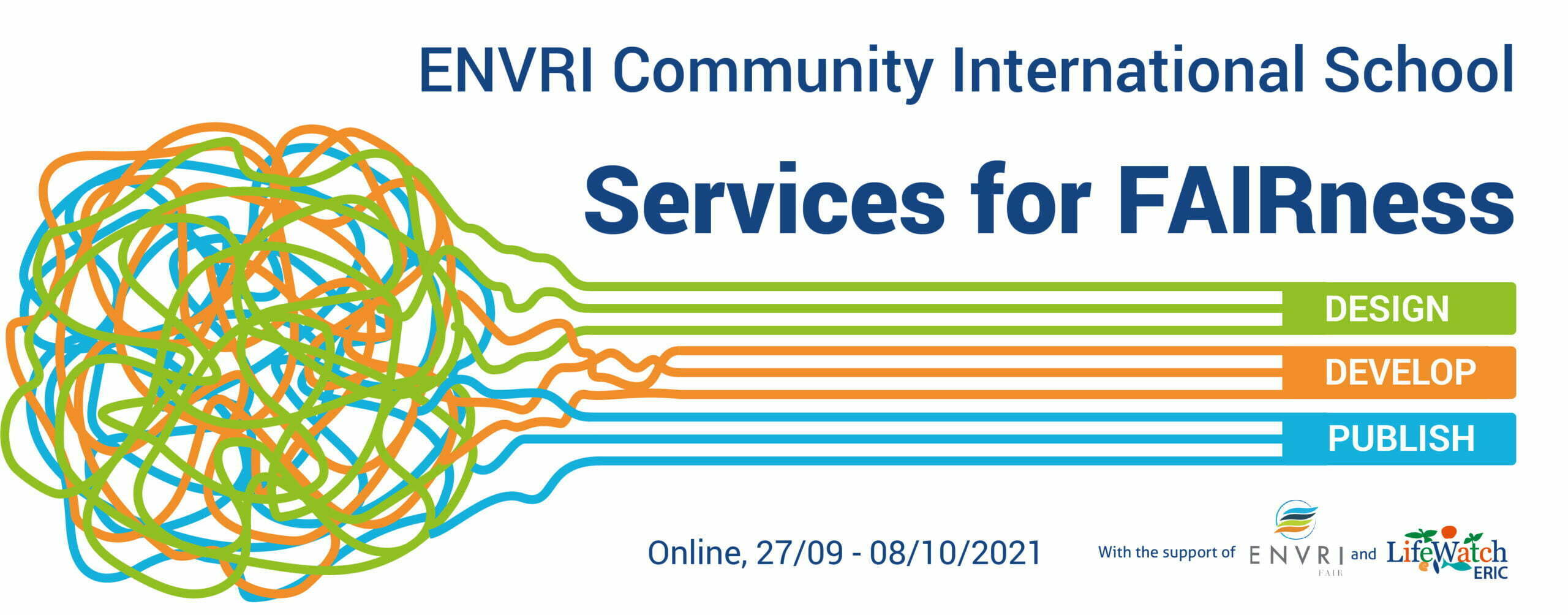Day 1 - Monday, Sept. 27

Malcolm Atkinson
Malcolm Atkinson was recruited as the inaugural Director of the UK National eScience Centre and eScience Institute in 2001. He led eScience until 2011, stimulating eResearch throughout the UK and building a vibrant global legacy. In Edinburgh this is manifest in the Software Sustainability Institute and the Data Curation Centre, both with global influence. Since completing his EPSRC senior research fellowship as UK eScience Envoy in 2011 Malcolm has continued eScience research with BBSRC, EPSRC, EU, NERC, PPARC and SHEFC funding in the School of Informatics. His research focuses on helping people and organisations share and exploit data and to recognise and overcome the human, organisational and technical barriers that limit our ability to extract and use vital evidence latent in data. Building on eScience and on EU projects (he has led them continuously since 1989), Malcolm was the architect of a series of EU and UK projects delivering improved platforms to facilitate data-intensive research. This includes medical images for stroke diagnosis, the use of seismic data and models for risk assessment and hazard-response and of climate data for impact modelling. He worked with 23 European strategic research infrastructures in environmental sciences to help them recognise useful commonalities in their data requirements, pushing them to budget to sustain software just as they would for their instruments as they depend on both. Now, he hopes to improve the use of Scottish retinal-image data.
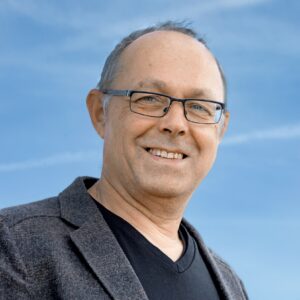
Andreas Petzold
Andreas is an atmospheric scientist with longstanding experience in the measurement of climate relevant aerosol optical properties across the troposphere in various environments. Today, he is heading the Research Group for Global Observation at the Institute of Energy and Climate Research – Troposphere (IEK-8) of Forschungszentrum Jülich in Germany. He is also member of Faculty of the Physics Department of University of Wuppertal and serves as a member of the Scientific Advisory Group Aerosols of the Global Atmosphere Watch programme of WMO. One of his primary tasks is the coordination of the European Research Infrastructure IAGOS (www.iagos.org), jointly with colleagues from France and the U.K. As a convinced supporter of the concept of research infrastructures, he is contributing to the Community of the European Environmental Research Infrastructures ENVRI and coordinates the EU Project ENVRI-FAIR which connects the cluster of ENVRIs to the European Open Science Cloud.
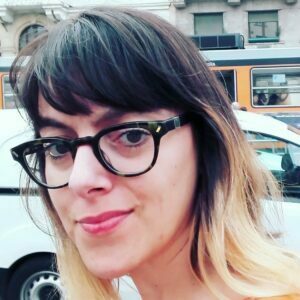
Rita Gomes
Rita Gomes is a Software Engineer with a strong focus in Data Science. Having majored in Information Technologies and in later Data Science, she has worked for different industries during several years, in fields like telecommunications and insurance. Driven by her passion for the environment, she joined IAGOS almost 2 years ago, where she mostly works with software development and data analysis, in a close connection with scientists. She is currently taking an MSc in Artificial Intelligence and is the technical co-lead of the exciting ENVRI-Hub project, where she gets to work with all the ENVRI community.
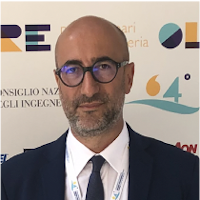
Nicola Fiore
Nicola Fiore is the ICT Coordinator of the LifeWatch ERIC Service Centre. He is Dr. Eng. Computer Science and PhD in Computer Engineering. He has 17 years of working experience in IT, in the field of the design and development of Information Systems in both the private and public sectors, and 10 years of accredited professional experience in the area of Biodiversity and Ecosystem Bioinformatics research. His research activities include the definition of common policies, models and e-infrastructure to optimise technological implementation; definition of workflows; and coordination, harmonisation, integration and interoperability of data, applications and other services. He is one of the member of the Vocabulary Services Interest Group leading the Ontology Market Place working group in the framework of the Research Data Alliance.
Day 2 - Wednesday, Sept. 29
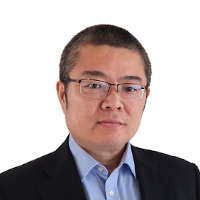
Zhiming Zhao
Zhiming Zhao is an assistant professor at University of Amsterdam (UvA). He leads the “Quality Critical Distributed Computing” research team in the group of Multiscale Networked Systems (MNS) at the System and Networking Lab (SNE). His research interests include big data management, Cloud and edge computing, software engineering, and blockchain. He leads the development support WP in ENVRI-FAIR and the VRE development in the LifeWatch-ERIC Dutch Virtual Laboratory Innovation Center. He is also the UvA PI in SWITCH, ENVRIplus, ARTICONF and several other projects.
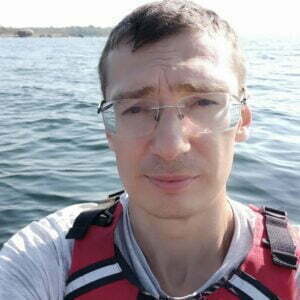
Oleg Mirzov
Oleg Mirzov has been originally educated as a physicist, but his long interest in programming and desire to organize research papers in a semantically meaningful way have lured him away into the world of ontologies first, and into the trade of professional software development soon after. He has worked as a data janitor, ontologist, and full-stack software developer since 2008, and as a systems architect/lead developer at ICOS Carbon Portal since 2015.
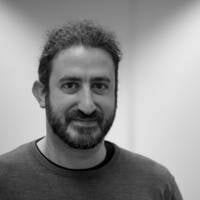
Alessandro Spinuso
Dr. Alessandro Spinuso is a senior researcher at the R&D Observations and Data Technology division of the KNMI (Royal Netherlands Meteorological Institute). He earned his PhD in Computer Science at the University of Edinburgh (UK) in 2018. At KNMI, he covers the roles of Project Leader and Product Owner within an Agile R&D team developing Provenance-aware Data Analysis services. The team is also involved in designing and implementing systems for the future KNMI Early Warning Center. His main research interest is the management and the exploitation of provenance information in the context of user controlled computational environments providing interactive tools and workflows for data-driven analysis. He is involved in several EU initiatives focusing on the development of e-science infrastructures for Earth Science research in Europe (EPOS, ENVRIFair, IS-ENES3, DARE, C3S). More recently, he is an invited expert to the IPCC TG-Data. This is a working group dedicated to the FAIR management of the data and methods that will be published in the next IPCC reports.
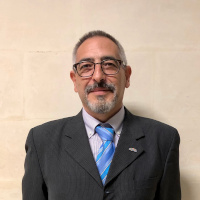
Antonio José Sáenz-Albanés
Antonio José Sáenz-Albanés is the ICT e-Infrastructure Operations Coordinator of LifeWatch ERIC. He received a Diploma in Engineering & Technology of Information from the University of Seville. He has 29 years of IT experience in both the private and public sectors. For ten years, he was PM of the “Centro de Gestión Avanzada” for IT-supported educational centres in Andalusia. He was CTO of a private company for ten years, responsible for all the ICT teams, managing every aspect of production and operations such as recruiting, training, strategic selection of technologies and partners, development and services methodologies, (ISO 9001:2000 using RUP-agile, ITIL, ISO 27000, CMMi). He deployed several VREs: nation-wide electric grid planning, improvement and adaptation of the biological station of Doñana to LifeWatch, and scenario-based water innovation and research laboratory. He was also Associated Lecturer in Languages & Information Systems at the University of Seville.
Day 3 - Friday, Oct. 1

Luca Cervone
Born in San Giovanni Rotondo (Italy) July 12th 1981. He got the scientific high school diploma in 2001 at the Liceo Scientifico Statale Generoso De Rogatis of San Nicandro Garganico (Italy). On December 19th 2006, he obtained a Bachelor’s degree in Computer Science at the University of Bologna. He completed his undergraduate studies obtaining a Master’s degree with honors in Internet Science on November 14th 2013 at the University of Bologna. In January 2007 he began his collaboration with the University of Bologna, in particular with the CIRSFID (Interdepartmental Centre for Research in Legal History, Philosophy and Sociology of Law and Legal Informatics), and worked in several research groups and projects for 12 years. In July 2014 he became a PhD in Legal Informatics. Now, his works and research are focused in using Web Technologies and Blockchain technologies to improve researches in Public Research Centers and Administrations.
Day 4 - Monday, Oct. 4
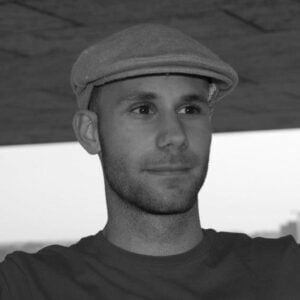
Antoni Huguet-Vives
ICT engineer specialized in front-end with a background in computer graphics and animation. Antoni spends his days as a front-end architect for the LifeWatch ICT Core team where he gets the chance to integrate the work of many other ICT colleagues and translate it into user friendly interfaces. Fond of human-centred design to enhance user satisfaction, human well-being, accessibility and sustainability.
Day 5 - Wednesday, Oct. 6

Malcolm Atkinson
Malcolm Atkinson was recruited as the inaugural Director of the UK National eScience Centre and eScience Institute in 2001. He led eScience until 2011, stimulating eResearch throughout the UK and building a vibrant global legacy. In Edinburgh this is manifest in the Software Sustainability Institute and the Data Curation Centre, both with global influence. Since completing his EPSRC senior research fellowship as UK eScience Envoy in 2011 Malcolm has continued eScience research with BBSRC, EPSRC, EU, NERC, PPARC and SHEFC funding in the School of Informatics. His research focuses on helping people and organisations share and exploit data and to recognise and overcome the human, organisational and technical barriers that limit our ability to extract and use vital evidence latent in data. Building on eScience and on EU projects (he has led them continuously since 1989), Malcolm was the architect of a series of EU and UK projects delivering improved platforms to facilitate data-intensive research. This includes medical images for stroke diagnosis, the use of seismic data and models for risk assessment and hazard-response and of climate data for impact modelling. He worked with 23 European strategic research infrastructures in environmental sciences to help them recognise useful commonalities in their data requirements, pushing them to budget to sustain software just as they would for their instruments as they depend on both. Now, he hopes to improve the use of Scottish retinal-image data.

Antonio José Sáenz-Albanés
Antonio José Sáenz-Albanés is the ICT e-Infrastructure Operations Coordinator of LifeWatch ERIC. He received a Diploma in Engineering & Technology of Information from the University of Seville. He has 29 years of IT experience in both the private and public sectors. For ten years, he was PM of the “Centro de Gestión Avanzada” for IT-supported educational centres in Andalusia. He was CTO of a private company for ten years, responsible for all the ICT teams, managing every aspect of production and operations such as recruiting, training, strategic selection of technologies and partners, development and services methodologies, (ISO 9001:2000 using RUP-agile, ITIL, ISO 27000, CMMi). He deployed several VREs: nation-wide electric grid planning, improvement and adaptation of the biological station of Doñana to LifeWatch, and scenario-based water innovation and research laboratory. He was also Associated Lecturer in Languages & Information Systems at the University of Seville.
